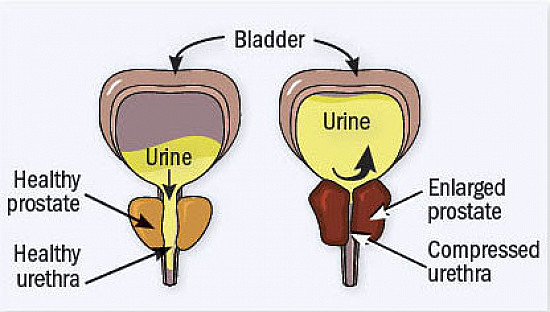Undergoing prostate surgery can be a significant and life-changing decision for many men. As with any surgical procedure, it’s natural to have concerns about potential side effects and the impact on your quality of life. Understanding what to expect can help you prepare both physically and mentally for the recovery process. Here, we’ll discuss the common side effects after prostate surgery and ways to manage them.
Types of Prostate Surgery
Firstly, it’s important to note that the type of prostate surgery you undergo can influence the side effects you may experience. Common types of prostate surgeries include:
- Radical Prostatectomy: Removal of the entire prostate gland, typically used for prostate cancer.
- Transurethral Resection of the Prostate (TURP): Partial removal of the prostate to relieve symptoms of an enlarged prostate.
- Laser Surgery: Use of laser technology to remove part of the prostate.
- Laparoscopic or Robotic-Assisted Prostatectomy: Minimally invasive procedures for removing the prostate.
Each type of surgery comes with its own set of potential side effects.
Common Side Effects
- Urinary Incontinence:
- Description: This is the inability to control urine flow and is a common side effect, especially after a radical prostatectomy.
- Management: Pelvic floor exercises, also known as Kegel exercises, can strengthen the muscles that control urination. In some cases, medication or further surgical interventions may be necessary.
2. Erectile Dysfunction:
- Description: Difficulty achieving or maintaining an erection is a frequent concern following prostate surgery, particularly with radical prostatectomy.
- Management: Options include oral medications (like Viagra or Cialis), vacuum erection devices, penile injections, or implants. Consulting a urologist can help determine the best course of action based on individual circumstances.
3. Changes in Orgasm:
- Description: Men may experience changes in orgasm, including dry orgasms (no ejaculation) or discomfort during orgasm.
- Management: Open communication with your partner and possibly consulting a sexual health therapist can be beneficial. Over time, many men adapt to these changes.
4. Urinary Tract Infections (UTIs):
- Description: Post-surgical patients are at an increased risk of UTIs due to changes in urinary function.
- Management: Drinking plenty of fluids, maintaining good hygiene, and following the doctor’s instructions for catheter care (if applicable) can help prevent infections.
5. Bowel Dysfunction:
- Description: Some patients may experience temporary bowel dysfunction, such as constipation or incontinence.
- Management: A high-fiber diet, staying hydrated, and using stool softeners as recommended by your doctor can alleviate these symptoms.
6. Pain and Discomfort:
- Description: Pain around the surgical site and discomfort are common immediately following surgery.
- Management: Pain relief medication, as prescribed by your doctor, and following post-operative care instructions can help manage pain.
Long-Term Considerations
- Recovery Time: Full recovery can take several weeks to months. Patience and adherence to your doctor’s advice are crucial during this period.
- Regular Check-Ups: Follow-up appointments are essential to monitor your recovery and address any long-term side effects.
- Lifestyle Adjustments: Incorporating healthy lifestyle changes, such as regular exercise, a balanced diet, and quitting smoking, can improve overall recovery and long-term health outcomes.
Psychological Impact
The psychological impact of prostate surgery should not be underestimated. Feelings of anxiety, depression, or changes in self-esteem are not uncommon. Seeking support from mental health professionals, joining support groups, or talking openly with loved ones can provide much-needed emotional support.
Conclusion
Experiencing side effects after prostate surgery is common, but many of these can be managed with appropriate care and lifestyle adjustments. Open communication with your healthcare team, staying informed about your treatment and recovery process, and seeking support when needed can help you navigate the post-surgical period more comfortably. Always remember, while the journey to recovery may be challenging, many men lead fulfilling lives after prostate surgery.





Comments